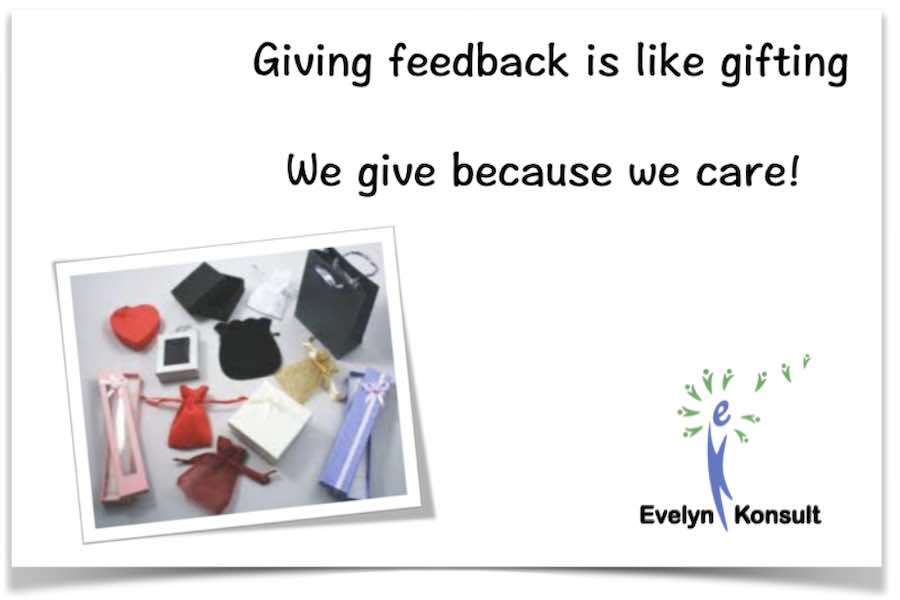I have worked with many leaders, project managers, agile coaches, and ScrumMasters, who shared their concerns about giving feedback. Though they know feedback can be a great tool to support and grow people around them. “I really want to have a conversation with that colleague….”, but there is also a list of concerns that people shared with me. Just to name a few:
Fear of damaging the relationship: One is concerned that giving feedback could damage their relationship with the person receiving the feedback. They may worry that the person will take the feedback personally and hold a grudge.
Fear of hurting the person’s feelings: One may be hesitant to give feedback because they don’t want to hurt the person’s feelings. They may worry that the person will be upset, defensive, aggressive, emotional, or even angry.
Difficulties in formulating the right words: One may also struggle to find the right words to express their thoughts and feelings effectively.
Concerns about the impact of feedback: One may worry that the feedback they give will not have the desired effect. They may worry that the person receiving the feedback will not be able to improve or that the feedback will not lead to any positive changes.
You might have noticed the energy level while reading through the list of concerns above. Does feedback have to bring in negativity? The answer is of course, no, not at all.
How do we work with feedback so that it comes with some positive vibes? With positive vibes, we will be more creative and innovative in everything we do. How about we think of feedback as gifts?
How do we work with feedback then? I am sure you have either learned sandwich model, or you have received feedback given via sandwich model. A very simple conversation can look like:
Top sandwich layer – this is the opening positive statement where we use something positive. “Johan, you have been contributing greatly to the customer release. Thank you for the troubleshooting work during the final integration, which was instrumental to the customer release. Thank you for the great work!”
Middle layer – this is the constructive part, highlighting what they didn’t do so well and how they can improve. “I noticed you didn’t quite show your two mentees how troubleshooting was done, to allow them to learn from this experience. If you can include your mentees in your future investigations, and troubleshooting activities, it will be very helpful to them and support their growth.”
Bottom layer – this is the closing, positive statement of the feedback session that reaffirms. “I know that when things get critical, the mentoring work can be easily de-prioritized. We are indeed asking a lot from you to continue the great work and to also mentor the two mentees. You have truly demonstrated professionalism and you absolutely continuously deliver beyond our expectations. Thank you.”
While it is an ok starting point model, we can definitely do better. We want to use this as an opportunity as a gift, a gift that the colleague will truly appreciate and benefit from. So instead of telling Johan in the above scenario, why not give Johan the opportunity to reflect on his experience and see what his thoughts are, then we can see how to best support him.

- What would you do to improve the above feedback, which unfortunately is not quite effective yet?
- How would you plan to wrap the gift of feedback?
- How would you make your feedback conversation clean?
- How would you give feedback without using the word feedback and make feedback a nicely wrapped gift that’s impactful, valuable and appreciated?
If you want to learn more about agile coaching skills, learn how to work with conflicts, and how to give more effective feedback, join our upcoming
Advanced Certified ScrumMaster (A-CSM) workshop. During our A-CSM workshop, you will get to learn theory and practices to become an even better ScrumMaster and pave your road to a great Agile Coach!


